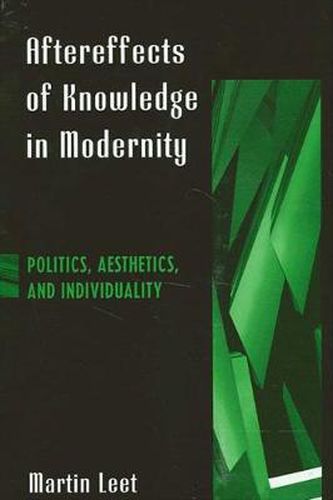Readings Newsletter
Become a Readings Member to make your shopping experience even easier.
Sign in or sign up for free!
You’re not far away from qualifying for FREE standard shipping within Australia
You’ve qualified for FREE standard shipping within Australia
The cart is loading…






The relentless accumulation of knowledge is a defining feature of modern life, but what if this feature begins to breed more confusion than enlightenment? Martin Leet examines how the often ambiguous and sometimes destabilizing aftereffects of knowledge have prompted a renewed interest in aesthetics and individuality in parts of contemporary political theory. He contends that this renewal is necessary and desirable, making his case through a multi-faceted critique of Jurgen Habermas. He also engages a wide range of thinkers and traditions, including Nietzsche, Emerson, Weber, the ancient Greeks, and the more recent contributions of Judith Butler, William Connolly, and George Kateb. By focusing on debates about democracy and citizenship, Leet develops a distinctive understanding of the relations between politics, aesthetics, and individuality.
$9.00 standard shipping within Australia
FREE standard shipping within Australia for orders over $100.00
Express & International shipping calculated at checkout
The relentless accumulation of knowledge is a defining feature of modern life, but what if this feature begins to breed more confusion than enlightenment? Martin Leet examines how the often ambiguous and sometimes destabilizing aftereffects of knowledge have prompted a renewed interest in aesthetics and individuality in parts of contemporary political theory. He contends that this renewal is necessary and desirable, making his case through a multi-faceted critique of Jurgen Habermas. He also engages a wide range of thinkers and traditions, including Nietzsche, Emerson, Weber, the ancient Greeks, and the more recent contributions of Judith Butler, William Connolly, and George Kateb. By focusing on debates about democracy and citizenship, Leet develops a distinctive understanding of the relations between politics, aesthetics, and individuality.